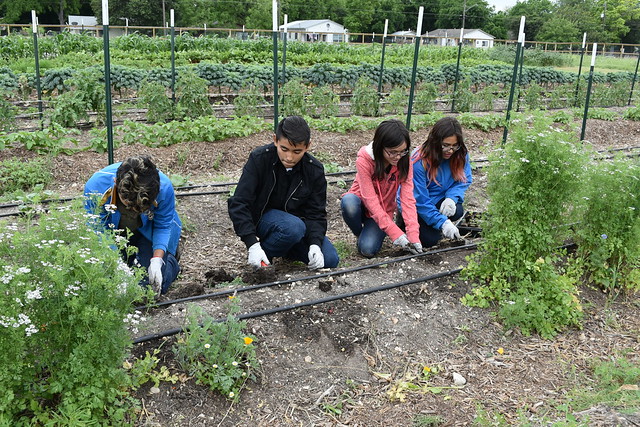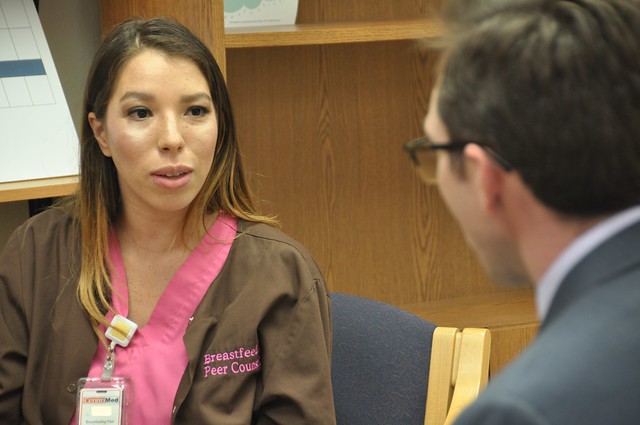
Last week, USDA Acting Deputy Under Secretary for Food, Nutrition, and Consumer Services (FNCS), Brandon Lipps, made a whirlwind trip to San Antonio, Texas, to serve as the keynote speaker at the National Child and Adult Care Food Program (CACFP) National Child Nutrition Conference and visit local sites operating FNCS programs. The highlight of his conference remarks was announcing the availability of $5.4 million in training grants to help child and adult care providers deliver first-class meal service.
Lipps emphasized FNCS’s key initiatives – promoting customer service, self-sufficiency and program integrity – and applauded attendees for their commitment to making a difference in the lives of children every day. USDA is committed to strong customer service, he said, encouraging program sponsors and operators to provide feedback on ways the agency can help make CACFP even stronger.
Lipps also detailed how CACFP plays a key role in supporting self-sufficiency by helping to provide quality, affordable child care and meal service for children whose parents are working to provide a better life for their family. Finally, he encouraged the crowd to share their stories about operating with integrity and impacting lives every day.
Following the conference, Lipps visited IDEA Monterrey Park. Monterrey Park is an affiliate of IDEA Public Schools, a recipient of a USDA Farm to School Implementation Grant for their Healthy Kids Here Program. The program serves as an interdepartmental collaboration that bridges academics, farming and safety training.
The tour began inside the lively school cafeteria, where students are greeted daily by a mural reading, “Welcome to the Home of The Mighty Bears: Free Breakfast for All Students Every Day! No Excuses.” After sampling fruit dishes and interacting with students, Lipps received a briefing from Child Nutrition Department leadership on how they incorporate items from the school garden into school meals.
The visit culminated with a tour of that school garden. Students proudly showcased the vegetables they planted and harvested, all while sharing personal stories on how the farming program helped improve their behavior and academics.
The school visit underscored his remarks at the conference: “It’s not just about making sure that children have fresh fruits and vegetables; it’s also important, as generations continue to move further away from the farm, that people understand where their food comes from. As kids learn more about agriculture, they come to appreciate those foods.”
His last stop of the busy day was to CentroMed Women, Infants and Children’s (WIC) Clinic, where he met program participants and listened to their stories of how WIC helped their families. Peer counselors from the clinic, who help other WIC moms have a positive breastfeeding experience, took him through the process of a typical appointment and briefed him about the Texas WIC program.
It was a great homecoming for the USDA official, who originally hails from Texas, but even better to connect with the hardworking providers and families that benefit from our nation’s nutrition assistance programs.



